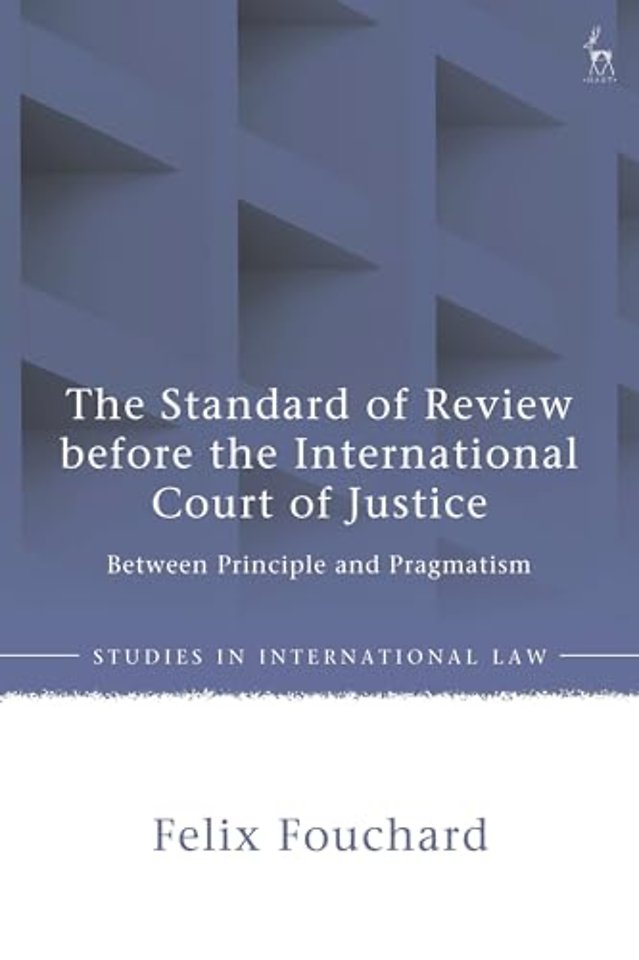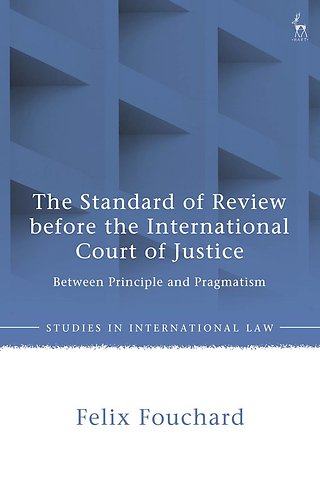The Standard of Review before the International Court of Justice
Between Principle and Pragmatism
Samenvatting
This book examines how the International Court of Justice (ICJ) reviews State behaviour through the prism of the standard of review.
It develops a novel rationale to support the ICJ's application of deferential standards of review as a judicial avoidance technique, based on strategic considerations. It then goes on to empirically assess all 31 decisions of the Court in which the standard of review was at issue, showing how the Court determines that standard, and answering the question of whether it varies its review intensity strategically.
As a result, the book's original contribution is two-fold: establishing a new rationale for judicial deference (that can be applied to all international courts and tribunals); and providing the first comprehensive, empirical analysis of the ICJ's standards of review. It will be beneficial to all scholars of the Court and those interested in judicial strategy.
Specificaties
Inhoudsopgave
List of Tables
Table of Cases
1 Introduction
I. Significance of the Standard of Review
II. Definition of the Term 'Standard of Review'
III. Structure of the Book
IV. Methodology
V. Key Empirical Insights
2 Old Wine in New Skins?
I. The Doctrine of Non-Justiciability in the International Order
II. State Arguments for a Deferential Standard of Review
III. A Common Denominator: the Better-Placed Contention
IV. Standard of Review Claims as Old Wine in New Skins?
3 Something New under the Sun: Standards of Review as a Judicial Avoidance Technique
I. Judicial Avoidance: Dubious from an Orthodox Point of View, yet a Practical Necessity
II. Pronouncements Serving as Merits-Avoidance Techniques
III. Pronouncements Serving as Issue-Avoidance Techniques
IV. Deferential Standards of Review as a Judicial Avoidance Technique
4 Absence of Judicial Oversight
I. National Security Interests
II. Domestic Matters
III. Political Determinations
IV. Scientific Determinations: Explicit Rejection in Whaling
V. Conclusion for the Absence of Judicial Oversight
5 Good Faith
I. A Textual Basis for the Application of the Good Faith Standard
II. Good Faith Standard as Counterbalancing: Bosnian Genocide
III. Conclusion for Good Faith
6 Reasonableness
I. National Security Interests
II. Domestic Measures
III. Political Determinations: Conditions of Admission to the UN
IV. Scientific Determinations
V. Conclusion for Reasonableness
7 De Novo
I. National Security Interests
II. Domestic Measures
III. Political Determinations
IV. Scientific Determinations: Whaling
V. Conclusion for De Novo
8 Conclusion
I. De Novo as the Court's Default, but far from Constant Standard of Review
II. Rarely Autonomous Adoption of a Deferential Standard of Review
III. Mostly Stricter Standard of Review than Invoked by the Respondents
IV. Subject-Matter as a Factor for the Adoption of a Deferential Standard of Review
V. Strategic Use of Deferential Standards of Review
Bibliography
Anderen die dit boek kochten, kochten ook
Net verschenen
Rubrieken
- aanbestedingsrecht
- aansprakelijkheids- en verzekeringsrecht
- accountancy
- algemeen juridisch
- arbeidsrecht
- bank- en effectenrecht
- bestuursrecht
- bouwrecht
- burgerlijk recht en procesrecht
- europees-internationaal recht
- fiscaal recht
- gezondheidsrecht
- insolventierecht
- intellectuele eigendom en ict-recht
- management
- mens en maatschappij
- milieu- en omgevingsrecht
- notarieel recht
- ondernemingsrecht
- pensioenrecht
- personen- en familierecht
- sociale zekerheidsrecht
- staatsrecht
- strafrecht en criminologie
- vastgoed- en huurrecht
- vreemdelingenrecht







